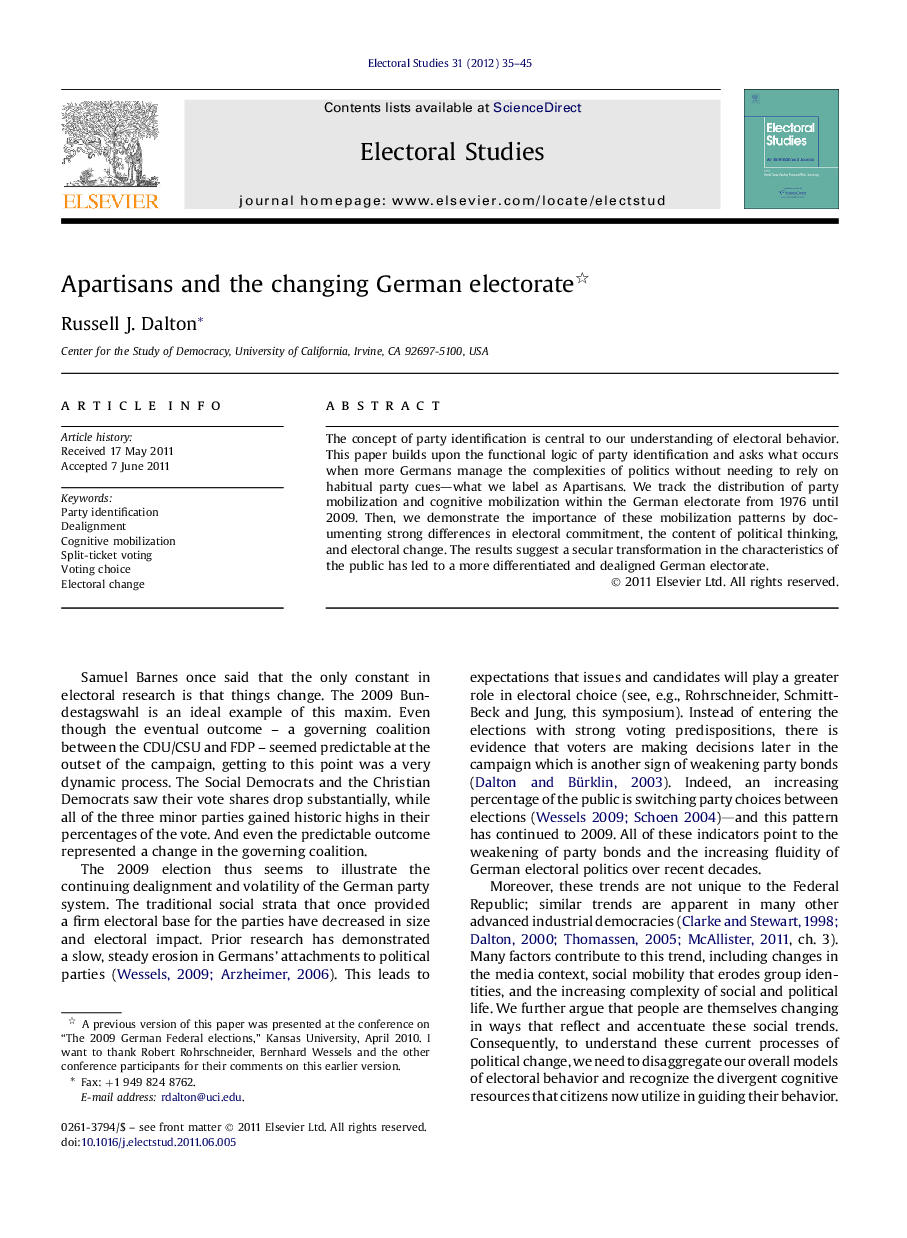| Article ID | Journal | Published Year | Pages | File Type |
|---|---|---|---|---|
| 1052104 | Electoral Studies | 2012 | 11 Pages |
The concept of party identification is central to our understanding of electoral behavior. This paper builds upon the functional logic of party identification and asks what occurs when more Germans manage the complexities of politics without needing to rely on habitual party cues—what we label as Apartisans. We track the distribution of party mobilization and cognitive mobilization within the German electorate from 1976 until 2009. Then, we demonstrate the importance of these mobilization patterns by documenting strong differences in electoral commitment, the content of political thinking, and electoral change. The results suggest a secular transformation in the characteristics of the public has led to a more differentiated and dealigned German electorate.
► We study German public opinion and voting behavior from 1976 to 2009. ► The paper tracks the distribution of party identification and cognitive mobilization over time. ► These two traits produce strong differences in electoral commitment and political thinking. ► These traits also predict patterns of electoral change. ► Thus, social modernization has led to a more differentiated and dealigned German electorate.
